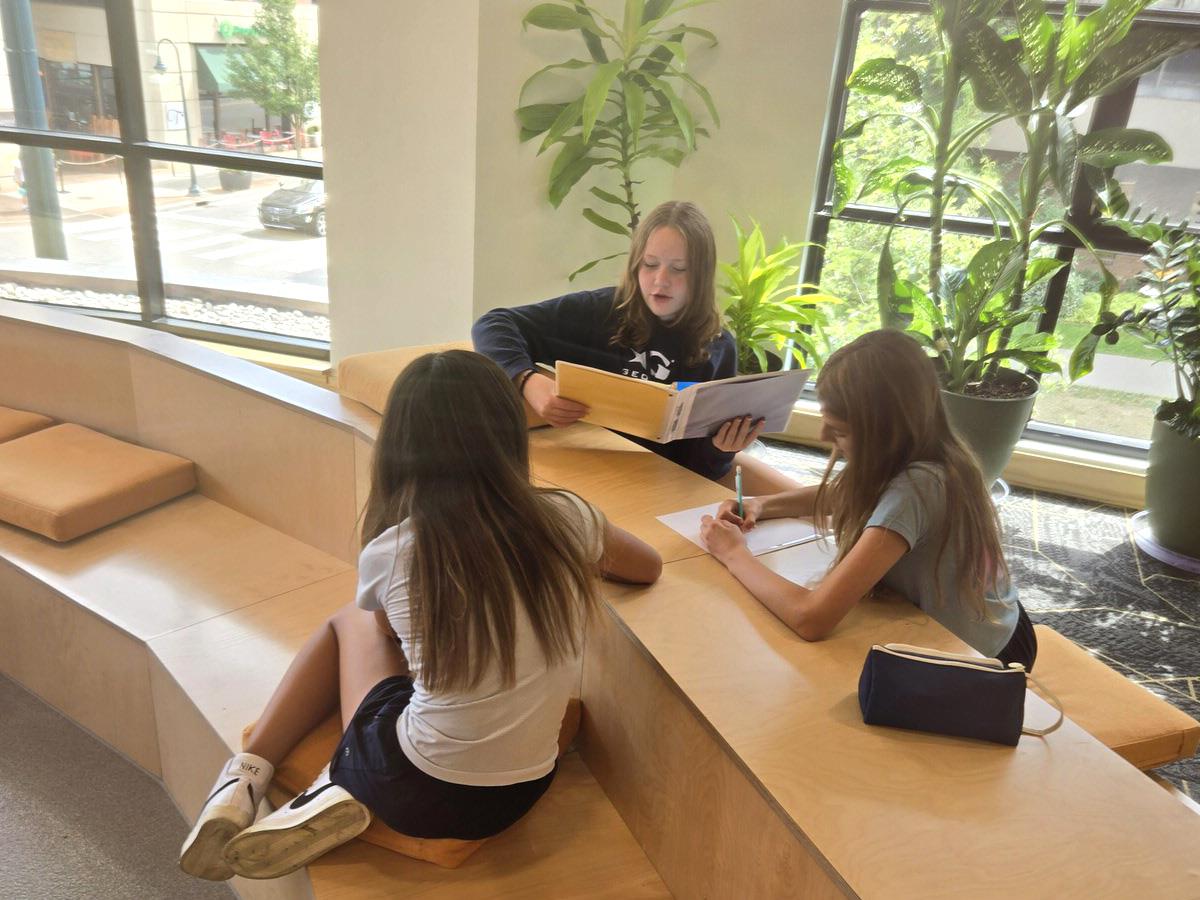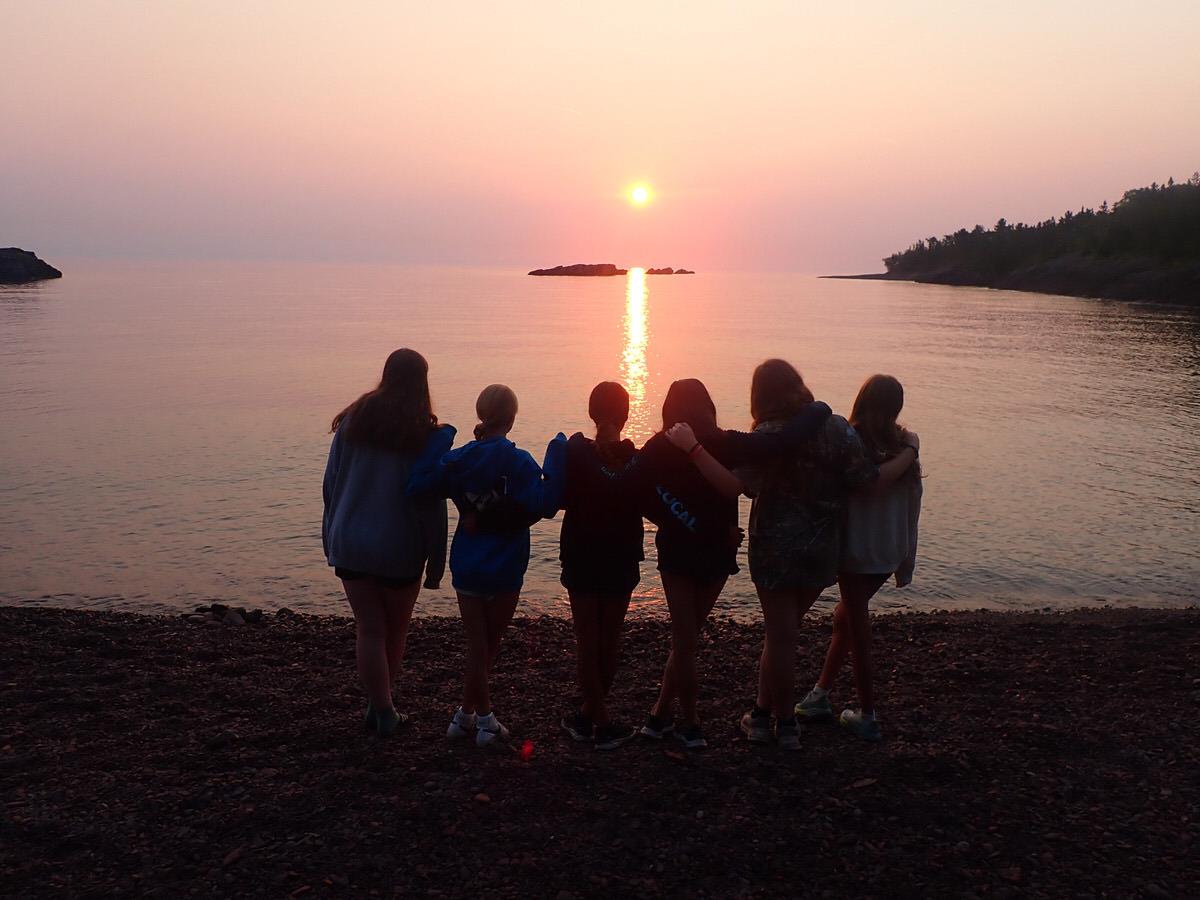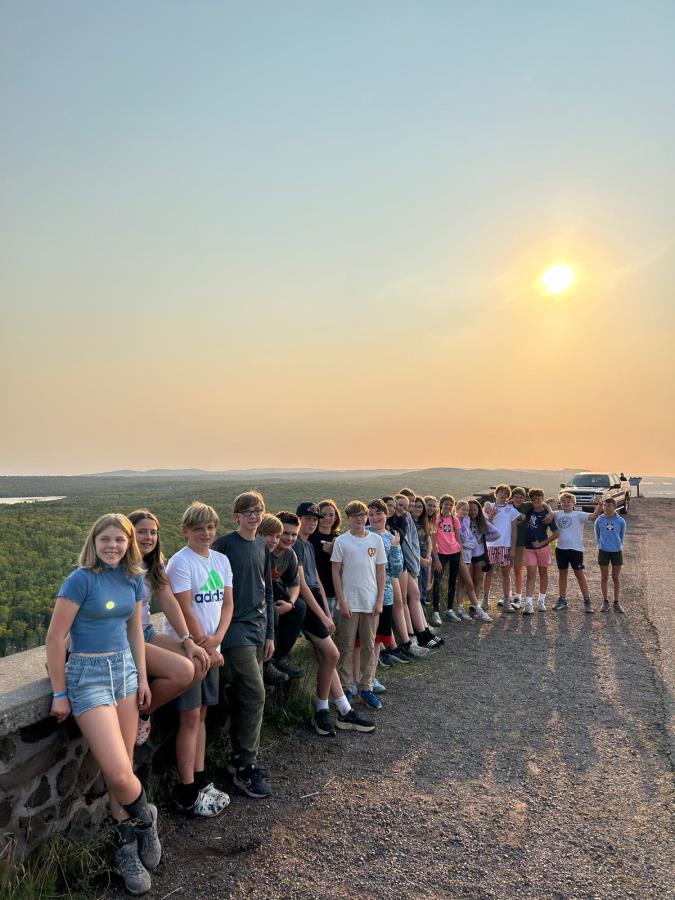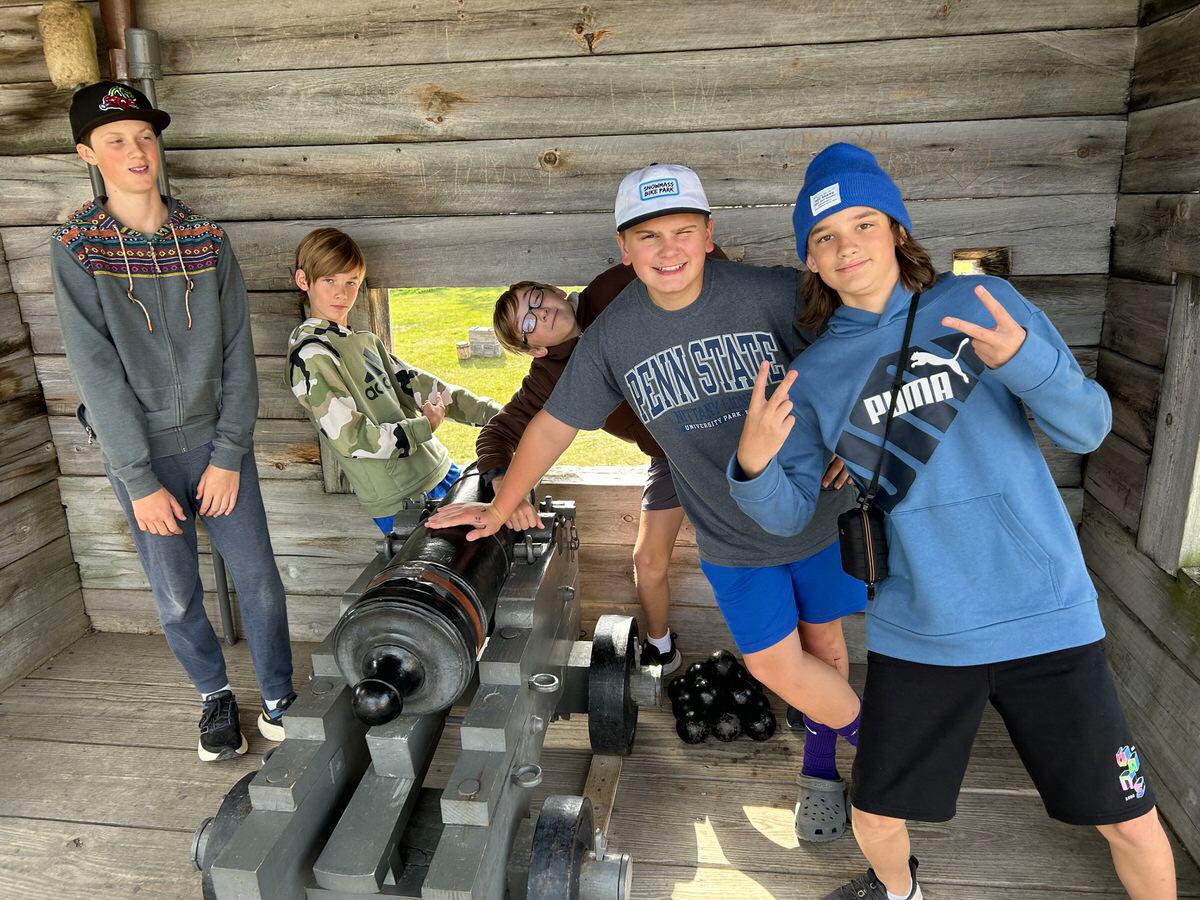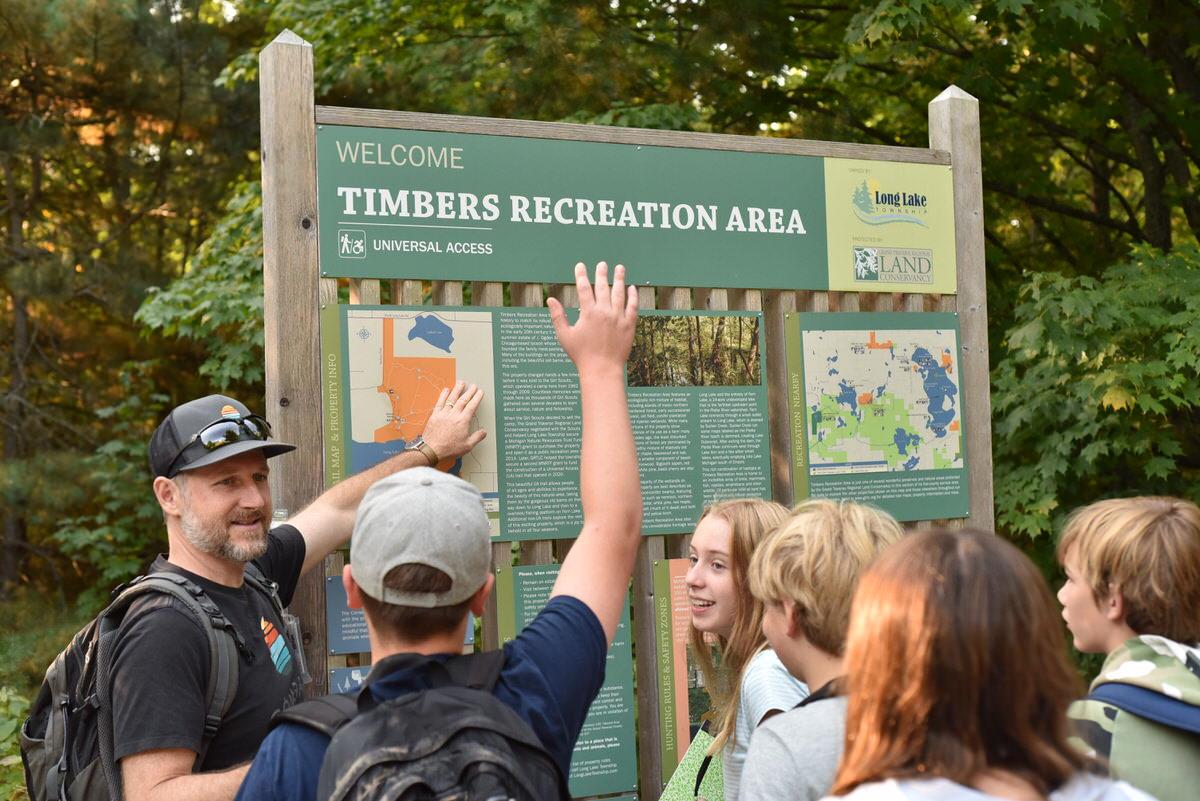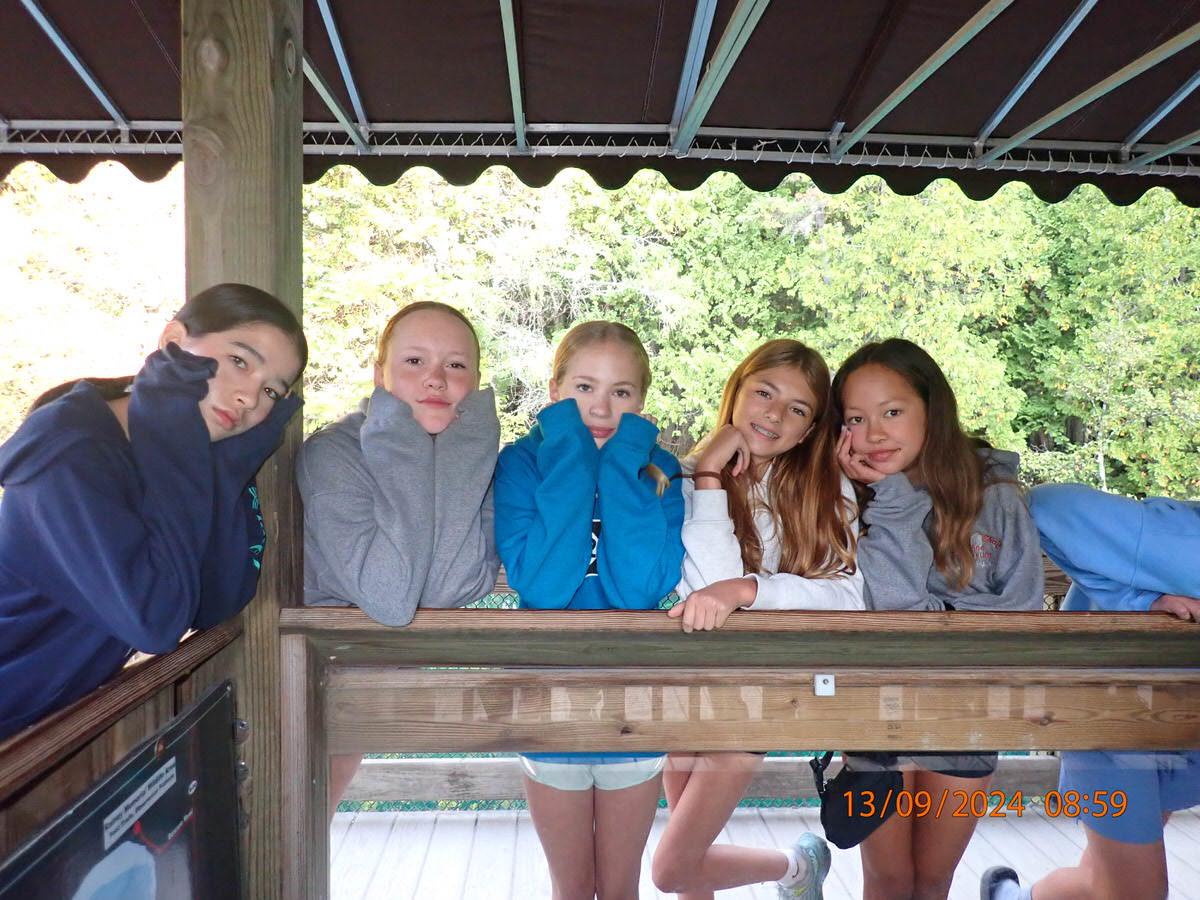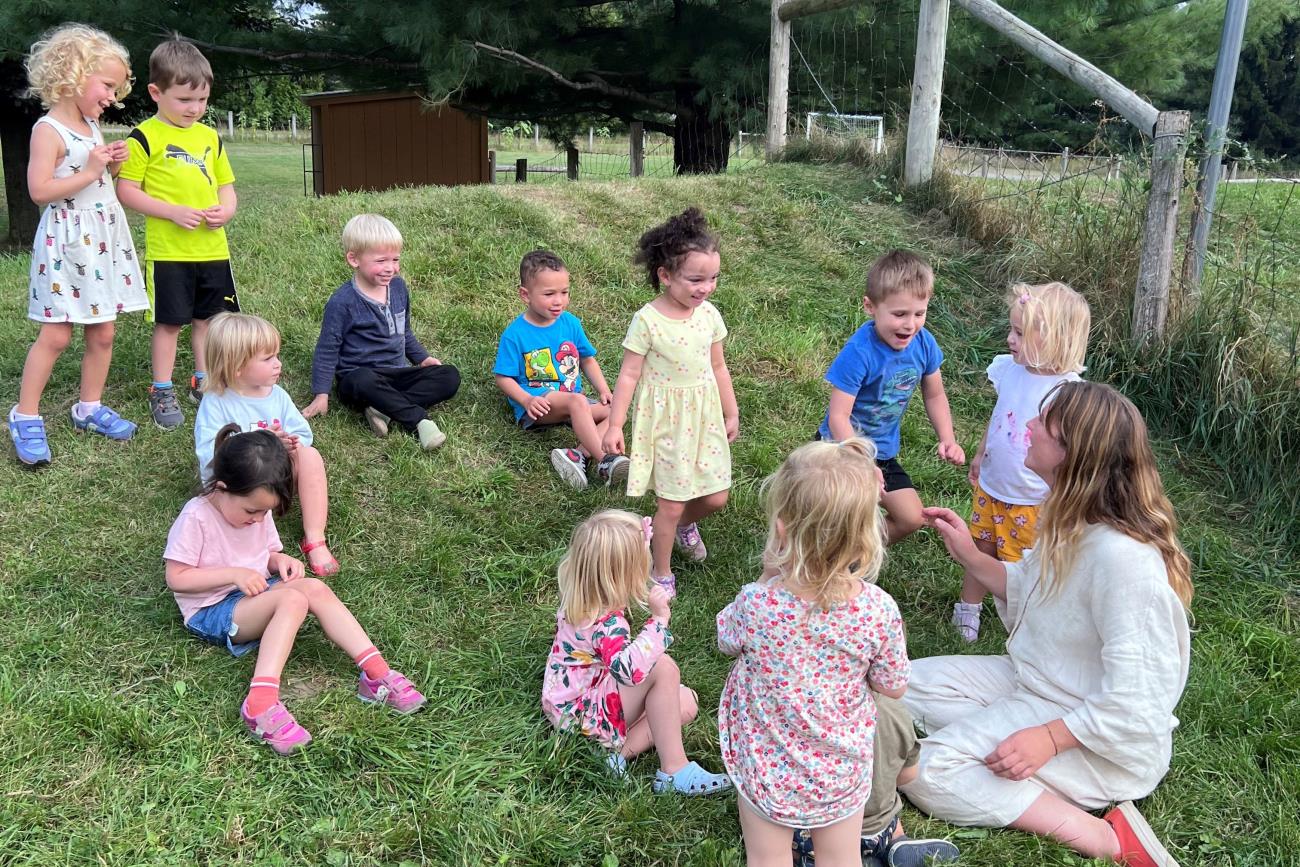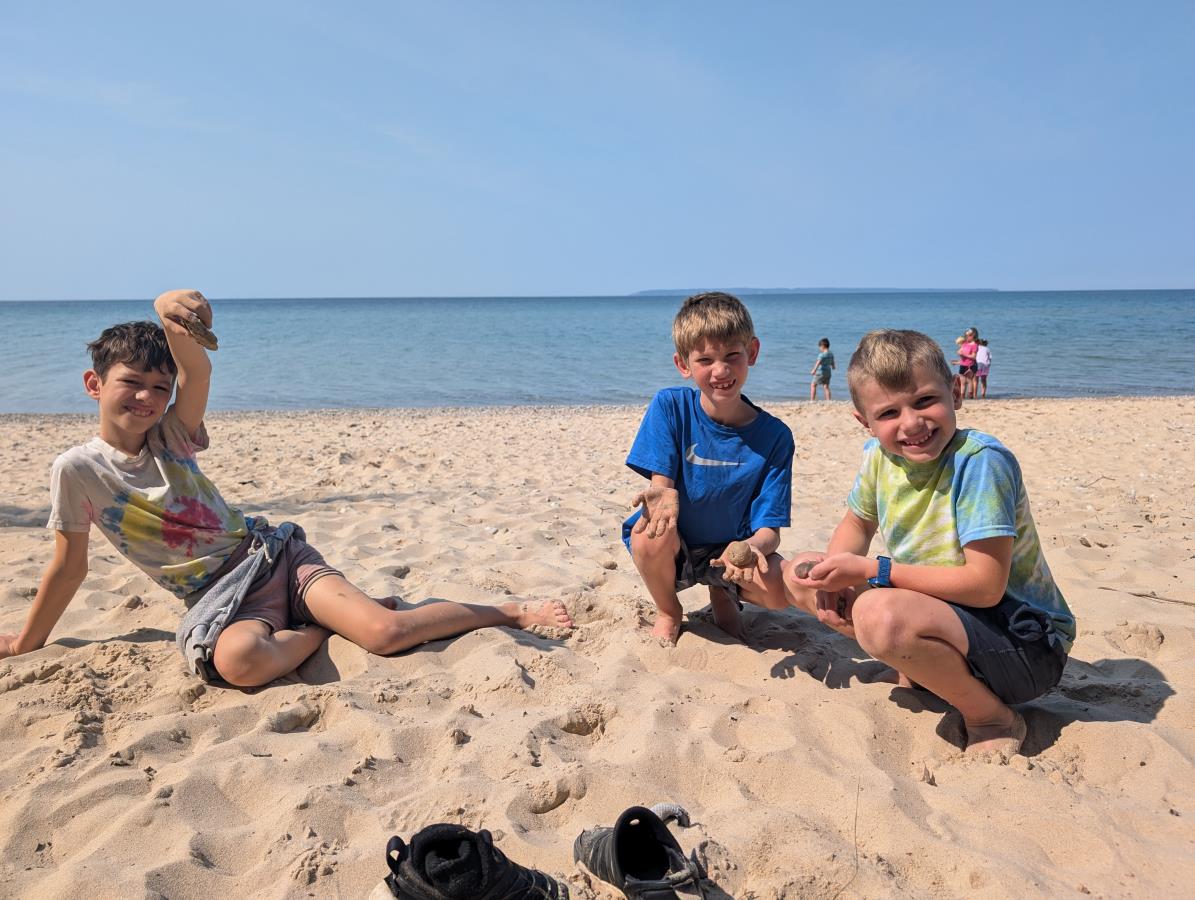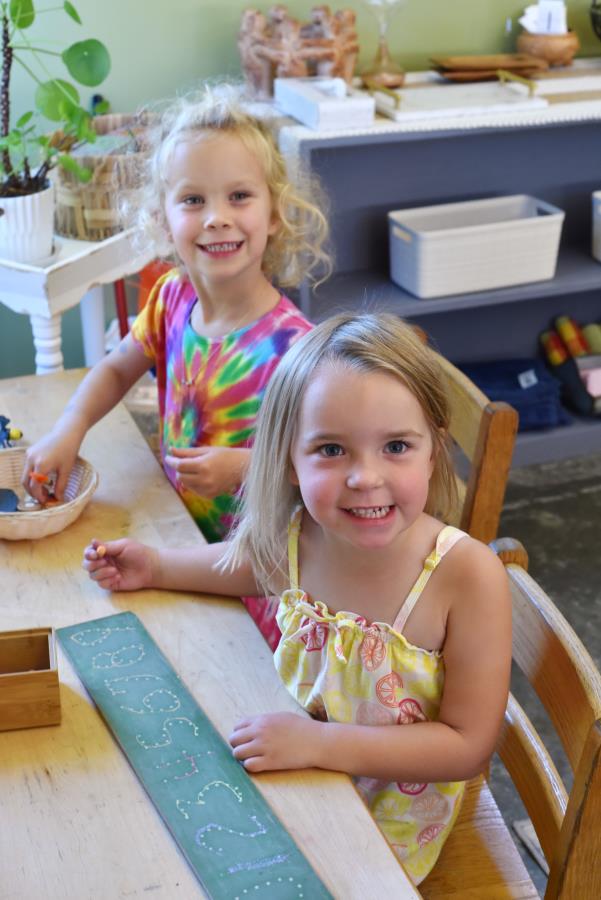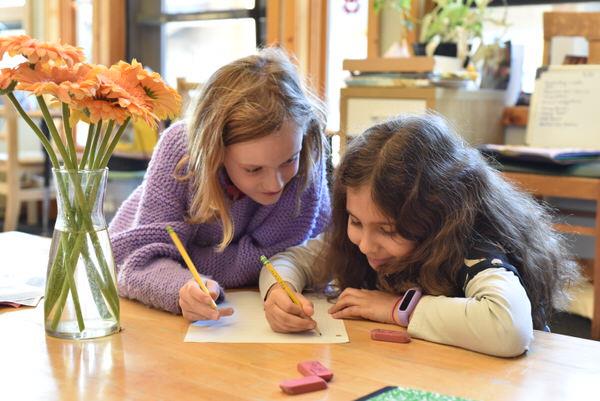Every year the intention of September is to orient new members to our community, challenge our returning 8th years with increased responsibility, and then unite the two groups into one. Week one begins with a staggered start with the 8th years arriving first to discuss their vision for classroom roles and responsibilities. We talk about what it means to be a leader, a mentor, and a role model. They prepare an orientation and a “job fair” of sorts focused on care of the environment as well as the leadership roles such as trip planning, photo, yearbook, and conflict resolution to name a few. Seventh year students then choose their “top three” interests, are interviewed, and ultimately offered apprenticeships.
Our first full day together is focused on creating agreements for living and working together over the course of the year. How do we want to feel? What do we need to learn? How will we work through conflict when it arises? These agreements set the foundation of the conflict resolution process, helping discussions turn us toward the promises that our “best selves” aspire to. Thursday and Friday of the first week, we introduce classroom routines, expectations, and general logistics, as well as an overview of the “NoMi Experience.”
The NoMi Experience is the name given to our week-long excursion that takes place the second week of school; this year our Northern Michigan Experience was a visit to the Upper Peninsula. Why do we travel together for a week to start off the school year? Travel provides challenge, challenge provides opportunities to support one another, as well as reveal our “not so supportive” tendencies. What happens when you’re grumpy? Tired? In need of space? How do you handle it? How do you set boundaries? How do you respect each other’s boundaries? Throughout the trip moments arise that require working together to find solutions that align to our classroom agreements. These discussions also inform changes, or refinements necessary to better understand what our classroom agreements mean and what they look and sound like in practice.
NoMi Highlight Reel
We live in a beautiful place. Michigan’s motto is, “If you seek a pleasant peninsula, look around you.” Our state is made up of two pleasant peninsulas, and we had the opportunity to hit the highlights in the Upper Peninsula.
- Fort Michilimackinac, (the better of the two)
- Soo Locks boat tour where we wave to Canada
- Tahquamenon Falls and the river mouth
- Munising, Muldoon's Pasties (eat like a Yooper)
- Pictured Rocks Boat tour; an overview for the end of the year hike
- Chutes and Ladders in Houghton (the craziest play area I’ve ever seen)
- Quincy Mine, Copper mining near Calumet
- 4Suns- Fish and chips!
- Prospector’s Paradise Rock shop; you want it, they got it!
- Cliff’s Shaft Iron mining; the story of iron mining in the U.P.
- Kitch-iti-kipi; DIY rafting over a natural spring
- Singing on the way home, playing at the rest stops, and sharing meals
In summary, history, engineering, geology, economy, water, culture, immigration, natural resources, stories, food, and fun. And, we had lovely weather to boot.
All of these places play a role in our curriculum over the course of the two year cycle. From industry to stewardship, from first peoples to Democratic movements, and everything in between.
As we wrap up the third week and head into the fourth, systems are starting to settle into place. Our first workshop, FreshWater Ecology, is underway. Tuesday and Thursday we spent at the Timbers learning about the diverse water systems on the property, as well as starting a writing piece based on observations.
This year we have a new opportunity to connect to the Little Traverse Bay Band of Odawa Indians. Monday we will be on our way north to meet with Eric Hemenway, a tribe historian. We will be eating traditional foods, hearing about the Odawa connection to water, and learning about resilience through the story of the Holy Childhood Boarding School.
As humans, storytelling is how we share information, memories, and lessons. It is also how we connect to each other. Throughout human history stories have helped us progress, from knowing which berries to eat, to knowing when to plant or harvest. Stories also help us find common ground, and unite our efforts to imagine and create new things, as challenges arise. In our travels and conversations with the many people we meet along the way, we get to hear so many stories from the past and present, as well as stories of hopes and dreams of the future. In the few weeks we’ve had so far this year, we’ve heard stories about generations of mining in families, immigration, preservation, shipping on the Great Lakes, peace, conflict, Indigenous people, and so much more. These stories connect us to the past, bring us into the present, and help us write our future.
One of the wonderful things about sending your children to school is that they get to experience a whole world outside of their lives at home. They are experiencing what it’s like to be a part of their school’s community, make friends, connect with the adults, and change and grow as individuals. As parents, we understand the importance of our children having these experiences on their own, but we also want to know about what goes on during their time away from us.
Some parents struggle to get a response from their children when they ask questions like, “How was your day?” It's helpful to have a guide on how to engage with your children so that they feel comfortable opening up and sharing the good (and not-so-good) details about their day at school.
Picking the right moment: Consider your child’s mood and if it is a good time to ask your questions. Give them time to relax. Try not to bombard your child with questions right away after school. Start by just saying, “I am so happy to see you!”
Lower your expectations: Remember that the school day is long and your child is in close quarters with many individuals throughout the day. This can be challenging and exhausting to navigate these relationships and interactions with others.
Celebrating accomplishments: Asking your child when they felt proud of themselves in the day allows your child to focus on their accomplishments and not to focus solely on pleasing others. This fosters a strong sense of self-esteem, intrinsic motivation, and resilience, allowing them to develop a healthy identity based on their achievements rather than external validation.
Hold off on friendship questions: As parents we want our children to feel included and have friends. However, sometimes questions like “Who did you play with today?” or “Who are your friends?” can put pressure on your child that this is important to you and it may not be important to your child or might not be a developmentally appropriate question for their age. Developmentally, children before the age of four, do not feel the need for “friends.” They may prefer to work or play independently. As we all know, social interaction is a basic human need. It is as important as food, water, and shelter when it comes to laying the foundation for the ability to thrive and survive. Rest assured, these needs are being met throughout your child’s day. Friendships may not be a crucial part of this right now. Also, neuro-divergent children may not presently have the skills to develop these relationships. As parents, it is important to meet our children where they are. Unless they voice these needs or concerns around friendships, try to refrain from asking these direct questions.
Many of the questions below may spark this desire for your child to share their social interactions with others.
Ask open-ended questions: Avoid questions that can be answered with a “yes" or “no.” Instead, ask questions that invite more than a one-word answer. Here are some examples of questions you could ask:
“What was the best part of your day?”
“What made you laugh today?”
“What made you happy today?”
“Did anything feel hard today?”
“Did anybody have a hard time today?”
“What was something new you tried today?”
“Did you have any challenges or tough moments today?”
“Did your teacher say anything funny today?”
“What are you looking forward to at school tomorrow?”
Check Your Teacher’s Classroom Highlights: Your child’s guide will be sending you monthly updates on the activities in their classroom. This is a great way to be informed about the classroom and gives you questions to ask your child about school. Please, look for them in your email and on the Classroom Pages.
As I sat in a Lower Elementary classroom observing during the morning work cycle, three children surrounded a rug working on a math material.
“It is my turn to move the beads on the bead frame,” one student says.
“No you went last time, it’s my turn,” says another.
The conversation continues and things escalate a bit, with both students believing their perspective is right. One of the adults comes over when she observes the students struggling and acts as a mediator in support of them resolving their conflict. She doesn't offer them the solution, just helps them take turns in the conversation hearing one another’s perspectives. The students come to an agreement and continue the computation.
The Montessori classroom, known as the Prepared Environment, is thoughtfully created to not only support students in their independent learning of academic subjects but also to learn from the earliest stages what it means to work and live in a community. Opportunities for conflict resolution, understanding the perspective and needs of others, friendships, self-care, and mentors and mentees are all an integral part of their daily life at school – even in the Nido.
As the children mature, they begin to learn the language of feelings and emotions and can express them to others in the moment. There is time to pause when situations arise to work through conflicts in real time. Learning about oneself and others occurs organically throughout the day with adult support when needed. Because of this, children learn what it takes to be in relationships with others in a very authentic way, rather than social and emotional learning as a stand-alone curricular element.
Step into any Montessori classroom and observe. Undoubtedly, you will see countless exchanges where social learning is taking place. Not because it is being explicitly taught, but because it is being experienced and supported.
Read more about how our school supports social and emotional learning on this new page in our Family Portal.
